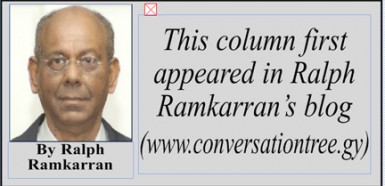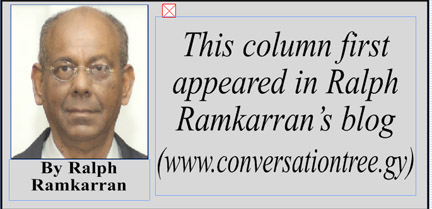
Mr. Heath-Retemyer, in an interview with Kaieteur News, published on June 22, accused the judiciary of resisting the government’s drive to reduce corruption because it is not willing to facilitate SOCU [the Special Organised Crime Unit] or SARA. He said that there is a “stark disconnection between the judiciary and the thirst of the nation for an end to corruption… I feel that sometimes the legal system here… doesn’t want to be in step with the honest desire of the law enforcement people (like SOCU) to ensure that they get the job done. I feel that if there was a greater sense of urgency and understanding on the part of the legal people and the system, they would be more willing to facilitate what SOCU or SARA would be doing.”
Mr. Heath-Retemyer’s concern appears to be the difficulties encountered by SOCU in obtaining court orders against banks for the production of documents relating to transactions of the banks’ customers. He said: “When SOCU officials turn to the Magistrates’ Court to compel banks to provide information, they are oftentimes left wallowing in disappointment. SOCU has been told, for example, that Magistrates do not have the power to issue orders that would force banks to open their books and/or make copies of certain documents. Even if SOCU is successful in obtaining such orders from the court the banking institutions are slow to comply, if at all.” Mr. Heath-Retemyer stressed that “the legal arm of the country needs to be trained so that they are more in favour of seeing justice being rolled out rather than being pushed back.” These highly damaging charges against the judiciary and magistracy of improper conduct in the carrying out of their duties have no basis in reality.
The judiciary does not exist for the purpose of facilitating the work of the State or State institutions, such as security bodies. Aiding the State in fighting crime and corruption is not part of its mandate. The function of the judiciary and magistracy is to enforce the rule of law without interference, especially by the executive. Judges and magistrates listen to evidence and legal arguments by lawyers on opposing sides. They consult laws, law books and decided cases, in coming to decisions. They then make rulings. They undergo training. Money-laundering was a recent topic. They do not and should not receive training in aims and objectives of the State and it security agencies.
Minister Ramjattan explained the situation in Parliament in a much more objective way by pointing out the difficulties that SOCU is encountering by the rejection by the High Court of successful applications to the Magistrates’ Courts for orders against banks to disclose documents.
It is well known there is a law of ancient vintage which protects the confidentiality of banker-customer relationships. The Financial Institutions Act makes it an offence to violate that confidentiality. However, to facilitate the investigation of criminal offences, the Evidence Act provides for a Magistrate to make an order on application by the police to obtain information from banks, including “bankers books,” in a “pending cause or matter.” The Police (SOCU) have been applying for such orders against suspects, but not in cases (“causes or matters”) which are pending before the court. Such orders granted by Magistrates are unlawful and some have been correctly struck down by the High Court. In December last year, SOCU had the opportunity to appeal against a High Court order which quashed such a Magistrates’ Court order. It had an opportunity to appeal and did not do so. And now it complains!
As an alternative, SOCU has also been applying to the High Court under the Anti-Money Laundering and Countering the Financing of Terrorism Act (the AML-CFT Act) for what is now known as a Production Order against a bank in relation to banking transactions of the bank’s customers. These orders have so far been granted. At least one or more of the banks believe that the AML-CFT Act prohibits the granting of such orders in relation to bankers’ books. The banks have challenged recent orders. Rulings, which will resolve this matter one way or the other, are being awaited.
Mr. Heath-Retemyer complains about the delay in producing documents by the banks. The fact is that SOCU is not investigating one act or seeking one document, as the AML-CFT Act seems to provide for. It engages in fishing expeditions by applying for what I would call “scattershot” orders to produce documents spanning many years and running into thousands just to see what it can find against suspects, if anything. In one matte, 12,000 documents were produced and still SOCU was not satisfied. It is the banking community that has grounds for complaint, not SARA and SOCU. The Evidence Act and AML-CFT Act are designed to be used as aids, not weapons.






